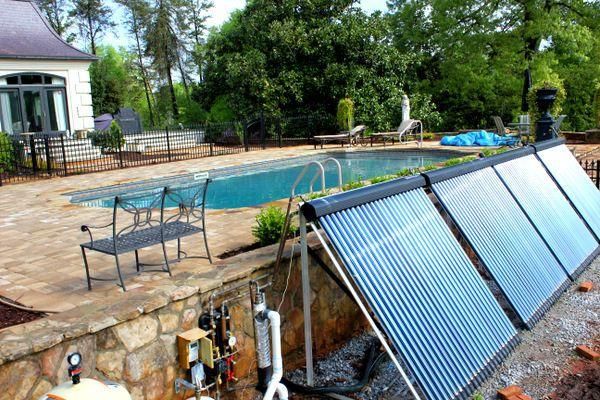Solar pool heaters
make the popular alternative to environmentally conscious individuals
looking to harness the power of the sun for efficient and cost-effective
pool water heating. Among different components that contribute to the
success of these systems, the Tube-in Shell heat exchanger has the
utmost significance. Please check out this blog post and understand the
importance of Tube-in-shell heat exchangers in solar pool heaters:
What Do You Mean by Tube in Shell Heat Exchangers?
Tube-in Shell heat exchangers come with a specific design that includes placing a series of tubes within a larger shell. These tubes facilitate the heat transfer between two fluids—typically, the solar heating fluid and the pool water. This type of heat exchanger offers several significant advantages that make it an ideal choice for solar pool water heating systems.
High Heat Transfer Efficiency - The tube-in-shell heat exchanger design maximizes the heat transfer surface area. With the increased surface area, these systems ensure efficient heat exchange between the solar fluid and pool water while providing optimal heating.
Adaptability to High Flow Rates - Solar pool heating systems
often need high flow rates for the maintenance of water temperature.
Tube-in Shell heat exchangers handle high-flow applications, making them
a reliable choice for solar pool heaters.
Resistance to Corrosion and Scaling - Pool water often contains impurities that can result in corrosion or scaling in heat exchangers. The design of Tube in Shell heat exchangers minimizes the risk of corrosion and scaling, providing long-term durability.
Ease of Maintenance - The straightforward design of the Tube-in Shell heat exchanger makes it easy to check and maintain. Regular maintenance ensures the continued efficiency and performance of solar pool heating systems.
Maximum Heat Distribution -
The tube-in-shell design provides efficient heat distribution throughout
the pool water. As a result, there are uniform temperature levels,
providing a comfortable swimming experience to pool users.
Final Conclusion -
When
it comes to investing in solar pool heaters, you should consider
investing in Tube in Shell heat exchangers as they provide a perfect
blend of efficiency, durability, and adaptability. Though more
individuals and communities turn to sustainable energy solutions, you
should not overstate the significance of these heat exchangers in
harnessing solar power for pool heating.
Whether
you're looking to reduce energy costs or minimize your environmental
footprint, you should consider a tube-in-shell heat exchanger as it can
ensure that your solar pool heating system operates at its best. Hence,
you will enjoy the enormous benefits of a warm and inviting pool powered
by the sun. Please check out available solar pool water heating systems
at Northern Lights Solar Tubs and find the right match for your needs.

Comments
Post a Comment